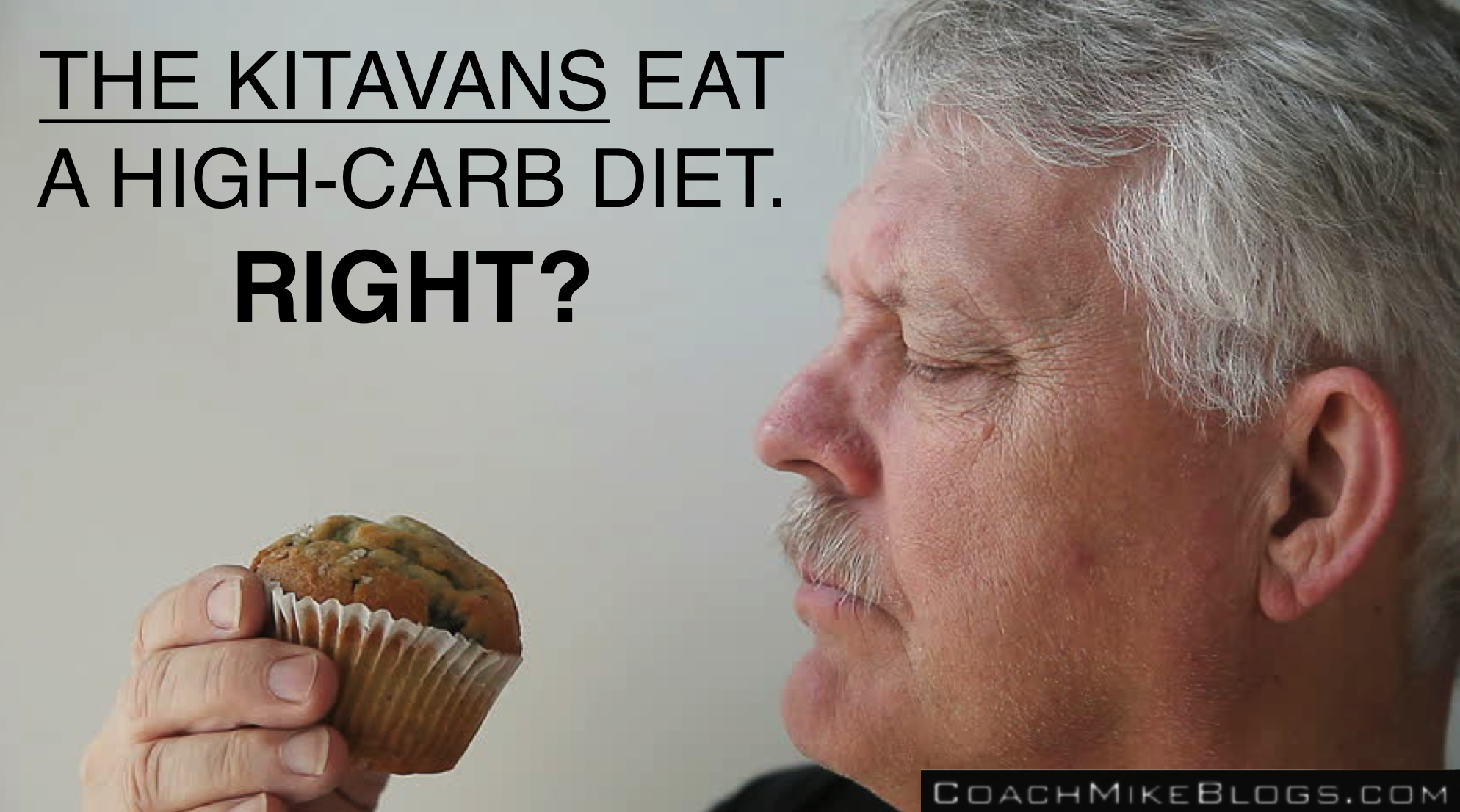You want to lose fat and improve your health, so you start researching the best approach. The more you ask around and read online and in newspapers, the more you get encouraged to experiment with a low carbohydrate strategy. Your new life will consist of meat, vegetables, nuts, seeds, water, coffee, tea, and maybe even a little full-fat dairy and fruit.

All is going well. You’re only 3 weeks into your plan and you’ve lost a considerable amount of weight. You are no longer craving the foods you once did, your energy level is through the roof, and your doctor is confused because the improvements in your blood work are remarkable.
(he still thinks dietary cholesterol and saturated fat = heart disease).
Then your friend sends you an article, or you catch an episode of your favorite talk show with contradictory advice. You immediately go online to do some research and over the next 2 hours this is what you find:
- The Kitavan Islanders eat what would be considered a high-carb diet, yet they’re lean and extremely healthy.
- The Aztecs and Egyptians both ate high-carb diets – one was corn-based and the other was wheat-based – yet only one developed diabetes.
- Orientals eat a lot of rice and they have lower heart disease and mortality rates than North Americans.

All of a sudden, you’re extremely confused. Were your results a fluke? Are you putting your health at risk? Should you be eating more carbohydrates?
No!
You ate a low carbohydrate diet for 3 weeks, and lost body fat (without muscle loss), lowered blood pressure, decreased inflammation, improved insulin sensitivity, reduced triglycerides, increased HDL cholesterol, and you’re no longer pre-diabetic.
Lowering carbohydrates worked for you, just like it works for millions of other people.
It works because it’s the superior solution for fat loss. Not only helping you lose weight without hunger, poor energy, and muscle loss, but improving your long-term health instead of sacrificing it.
Does it really matter if the Japanese remain healthy despite having rice in their diet?
Does it really matter if corn carbs fair slightly better than wheat carbs for disease prevention?
Does it really matter if there’s a remote population in Papa New Guinea that can eat more carbs than you?

The Kitavan Islanders can likely get away with eating more carbohydrates because they never put on fat and became insulin resistant to begin with.
Why?
Because:
- They only consume carbohydrates from fruits and vegetables (not grains and sugar)
- They’ve never been exposed to industrial seed oils and other oxidizing agents
- They haven’t been overmedicated with antibiotics & other gut-disrupters
- They eat plenty of anti-inflammatory foods (fish, coconut oil, etc)
- They walk every day and have plenty of leisure time
- Their circadian rhythm is in-check (plenty of sleep)
- They don’t sit at a desk for 40+ hours per week
- They’re not exposed to environmental toxins
Also, I don’t think there’s a McDonalds within 3 miles of their home, tub of ice cream in their refrigerator, or t.v. and laptop in their bedroom.
“What’s a guy gotta do to get a big gulp on Trobriand Island?”

We all get so caught up in one-off paradoxes for how and why we’re fat or how and why other populations aren’t instead of fixing what really matters…our fat body!
And if you’re carrying excess fat, the high-carbohydrate low-fat diet that’s dominated our eating habits for the last 40 years doesn’t work for you – just like it hasn’t worked for more than 65-70% of the population that’s overweight or obese.
Perhaps if you were leaner, naturally insulin sensitive, and didn’t have a past filled with damaging foods and lifestyle choices, you could get away with eating more fruit and starchy vegetables like the Kitavan Islanders. But for now, your insulin resistant cells give you a higher likelihood of storing any carbohydrates you eat as new fat. Period!

Often I wonder if we’re so addicted to wheat and sugar that we’ll search relentlessly for the needle in the haystack that tells us it’s okay to carb-load.
Point being – you will no doubt come across conflicting correlations and anomalies. But no one can argue with the fact that low-carbohydrate diets are the superior strategy for shedding fat in those with 5lbs to lose, 20lbs to lose, 50lbs to lose, or diabetes and insulin resistance.
…and for most people, too many carbohydrates is what’s driving fat storage.
Stay Lean!
Coach Mike
(P.S. When acellular carbohydrates (grains and flours) were introduced to tribes like the Kitavans (normally consumed only cellular carbohydrates – vegetables and fruits) they experienced the same inflammatory and metabolic issues seen in North Americans. And I’m guessing they also had just as much trouble keeping the fat off when returning to their higher-carbohydrate diet afterwards.)
RELATED ARTICLES:
The REAL Reason Asians Are Healthier
Low-Carb vs Low-Fat - What's to Debate?
Did a Low-Fat Diet Burn More Than a Low-Carb One?
10 Benefits of Low-Carb You Don't Get With Other Diets
Don't Mess With the Microbes - Gut Bacteria, Obesity & Disease
